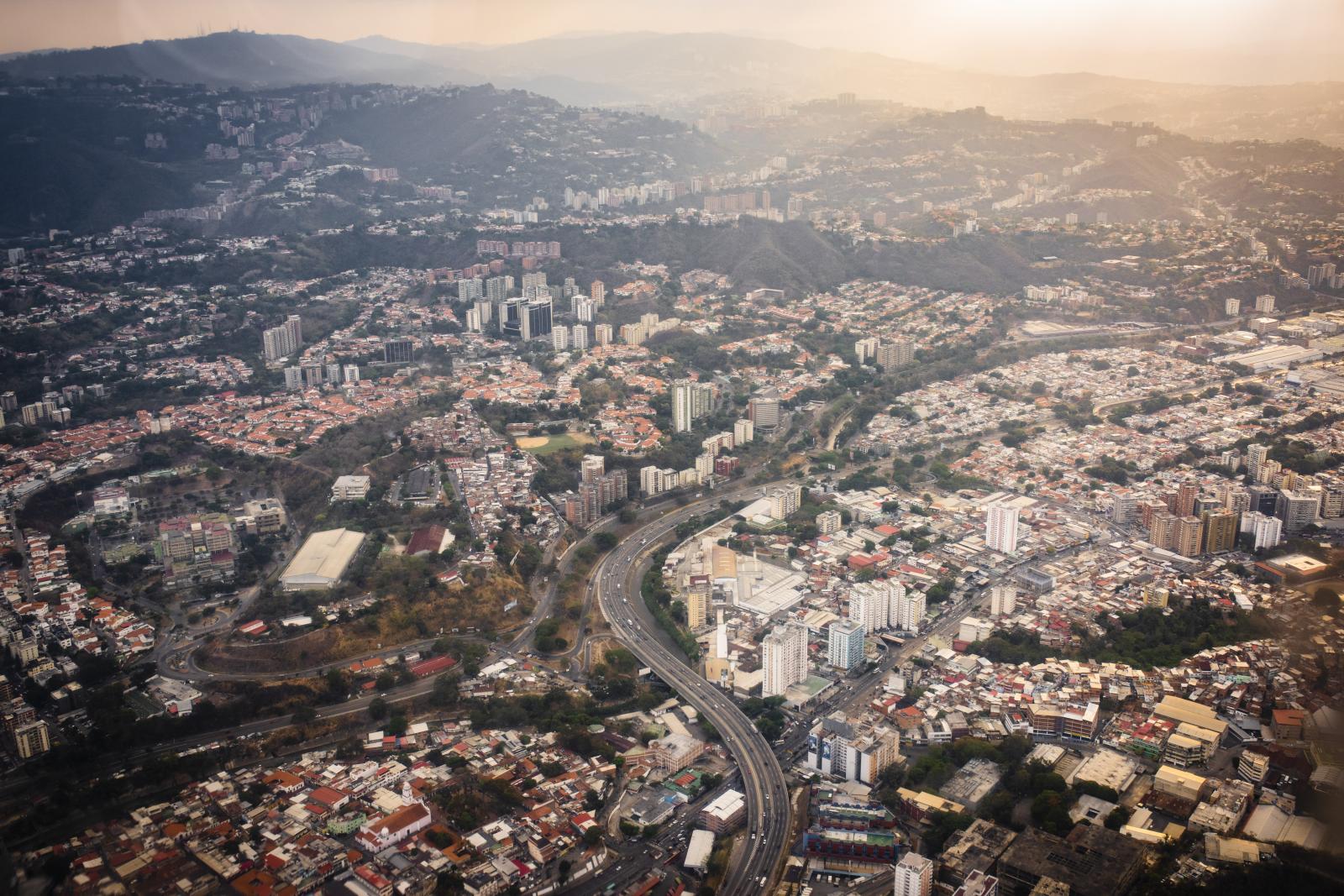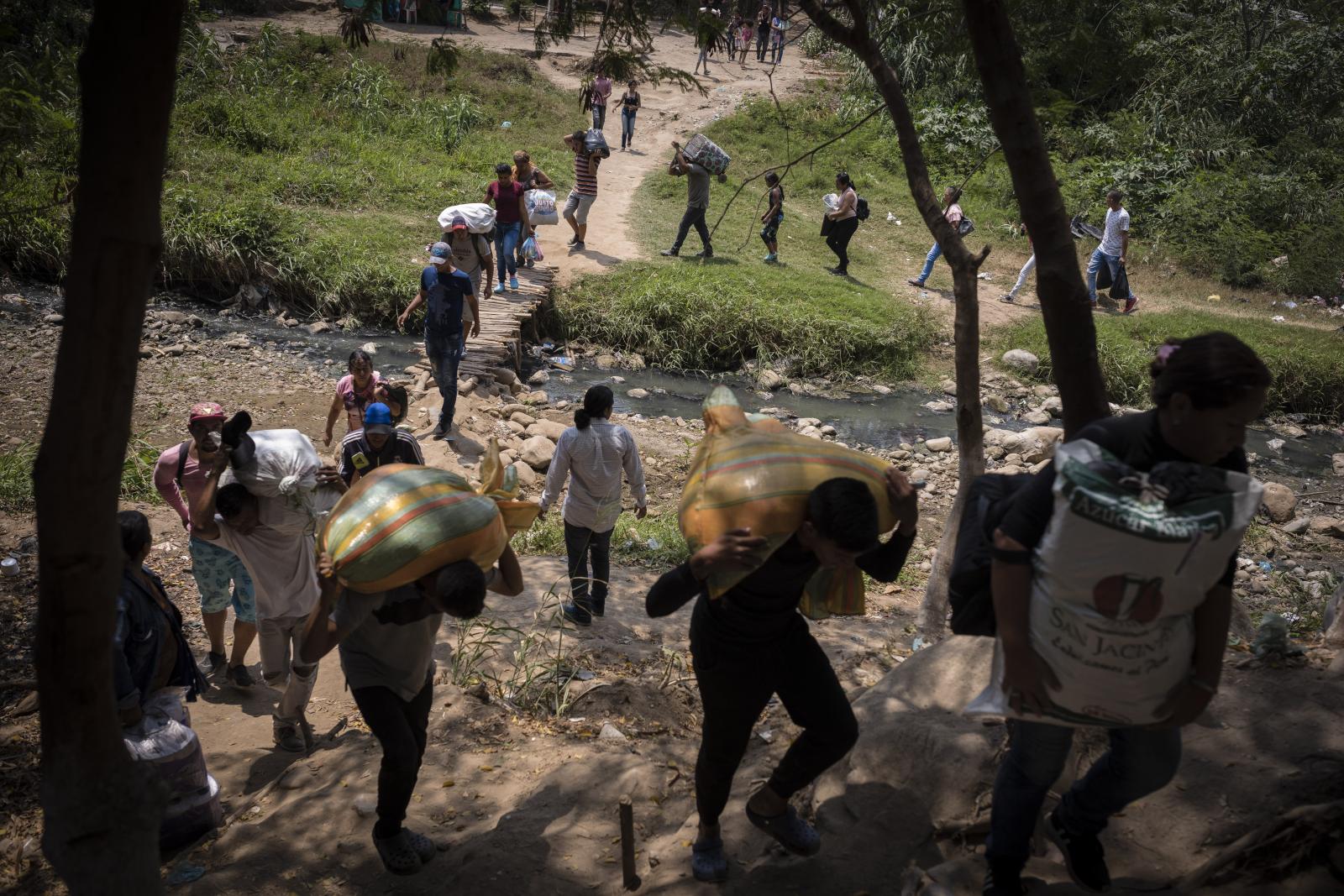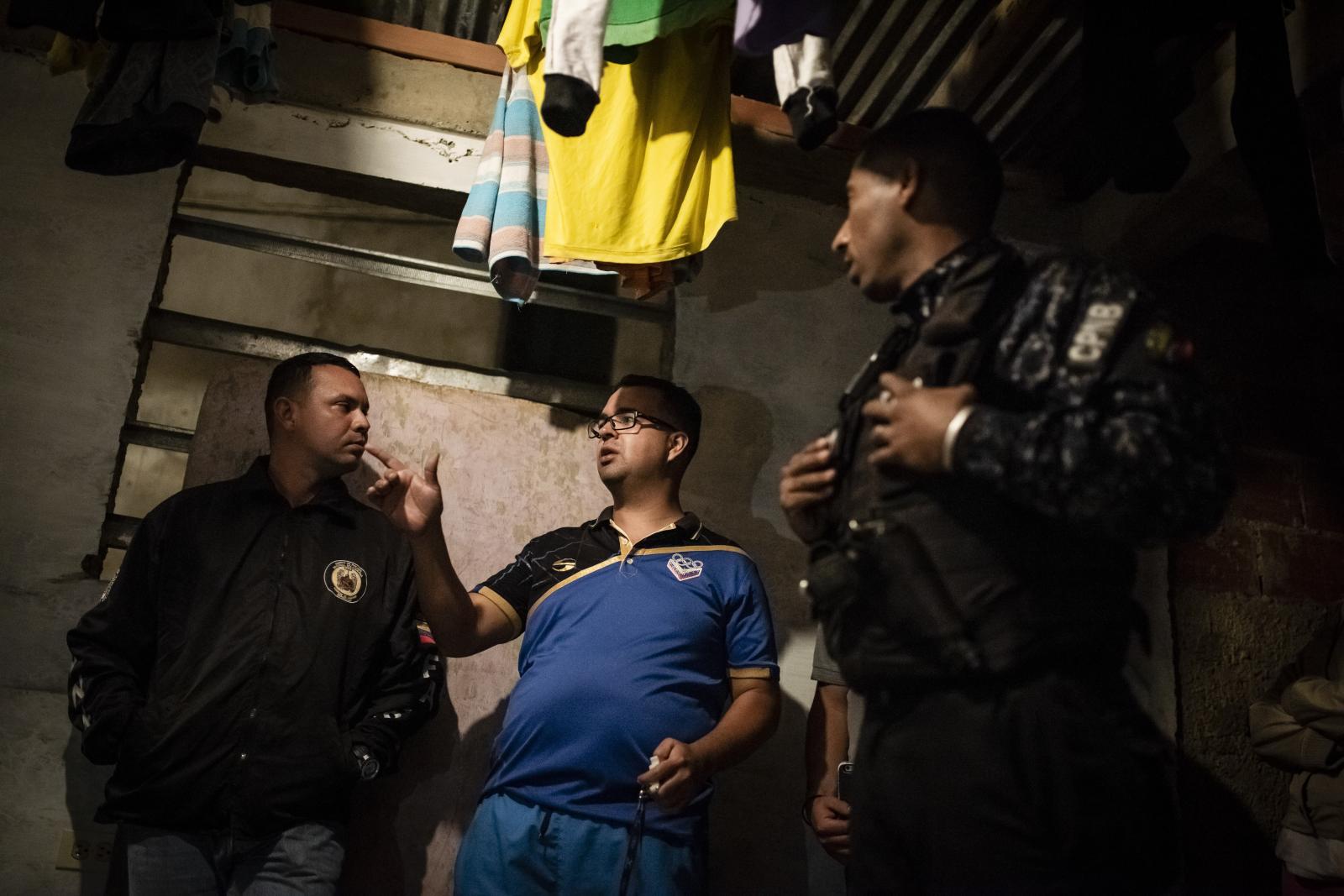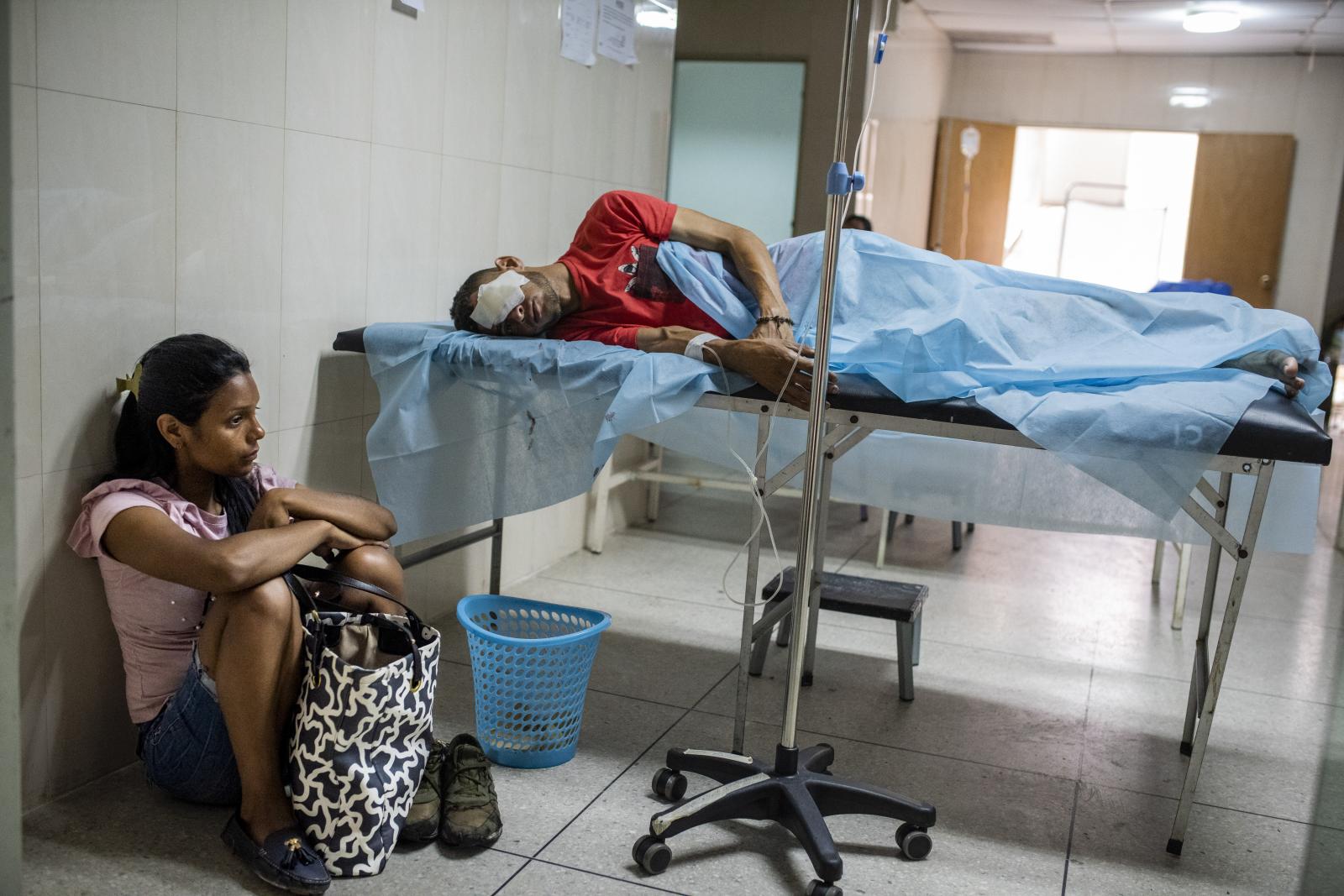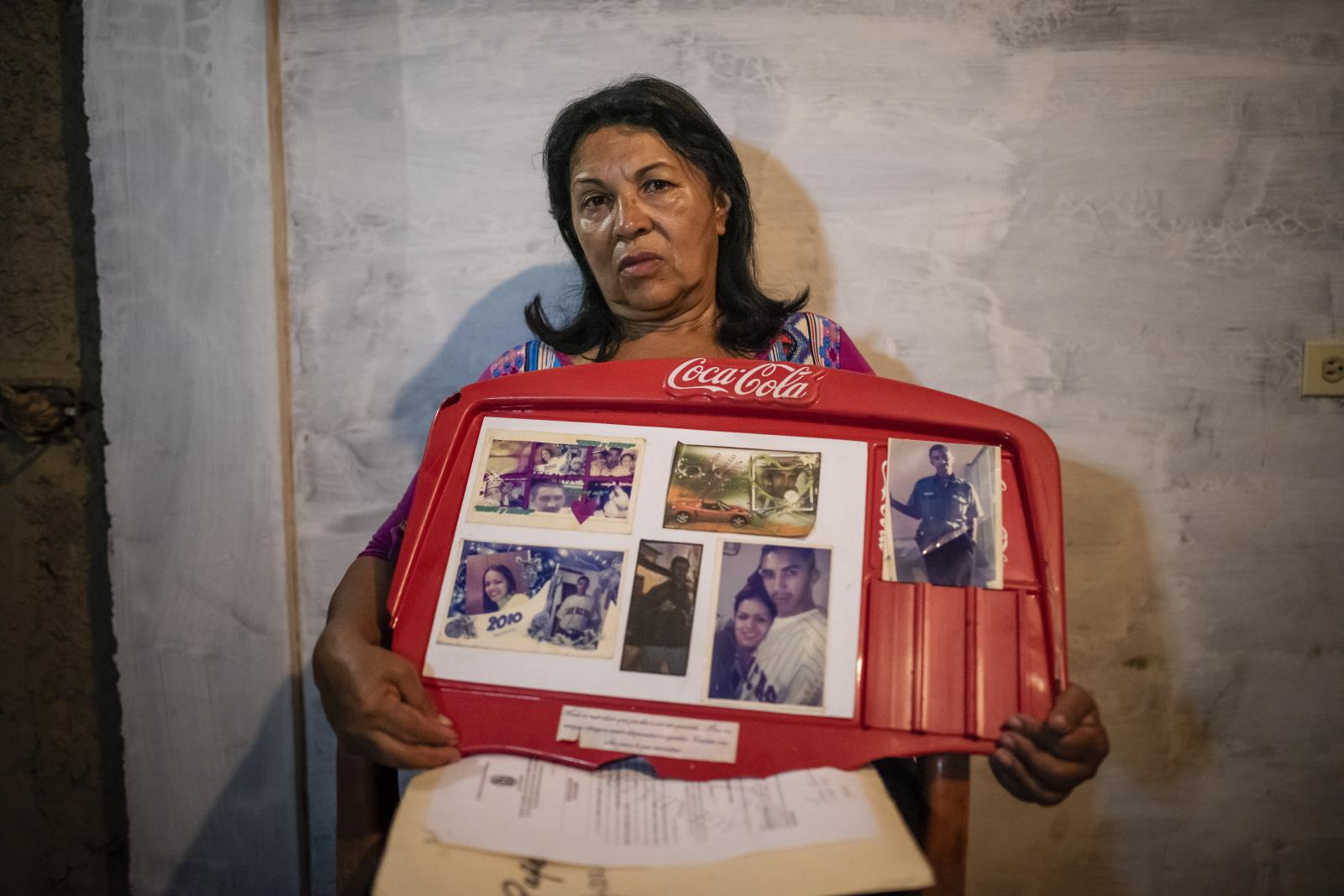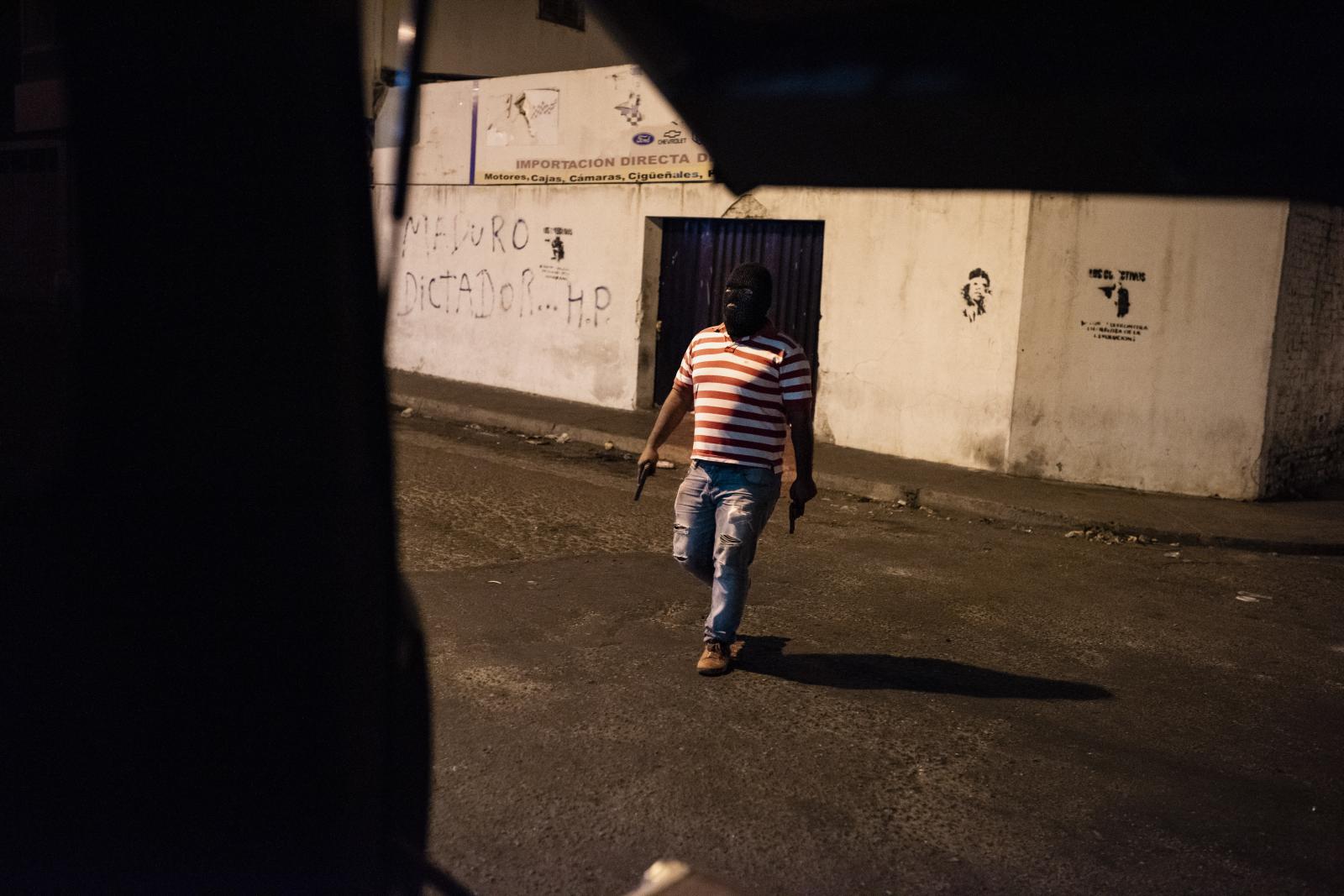Public Story
Venezuela / Between violence and justice
Summary
The colectivos play a fundamental role in Venezuelan society. They are civilian allies of the government, Chavez's right hand, and are dedicated to maintaining order within communities and providing social support to them.
However, over time they have generated a duality in their functioning.
Closely linked to drug trafficking, many members of the collectives abuse the power they have been given and leave aside the social work they were assigned to do.
As a result, many times, rather than generating trust, what they produce is fear.
However, over time they have generated a duality in their functioning.
Closely linked to drug trafficking, many members of the collectives abuse the power they have been given and leave aside the social work they were assigned to do.
As a result, many times, rather than generating trust, what they produce is fear.
The colectivos play a fundamental role in Venezuelan society. They are civilian allies of the government, Chavez's right hand, and are dedicated to maintaining order within communities and providing social support to them.
However, over time they have generated a duality in their functioning.
Closely linked to drug trafficking, many members of the collectives abuse the power they have been given and leave aside the social work they were assigned to do.
As a result, many times, rather than generating trust, what they produce is fear.
[The motors of motorcycles began to be heard, approaching in the distance, and everyone began to run, terrified. They were the motorcycles].
I am interested in investigating this duality, in getting to know the functioning and motivations of the members of these collectives. The power that the collectives acquire is often greater than that of the police.
The colectivos were created to reduce violence in the slums, and thus the government, hand in hand with this motorized group of civilians, could have a closer bond and also greater control.
The problem is that drug trafficking has led many of these individuals to thin the line between corruption, power and social justice. The fine line between doing good within their communities and crime.
In 2019 I had the opportunity to share and interact with a high command of a collective in Tachira, the TAMA collective. In that instance I was able to meet some of its members, the hierarchy and the functioning of the organization. They operate through a structure very similar to the military, with a great respect for their hierarchies, and with very clear limits in the work of each of their positions.
The beautiful and official face of the collectives is the one that provides social help, the one that gathers the social demands, the problems and needs of each community, the one that provides advice and essential goods, the one that carries out family and children's activities.
The other side is closely linked to corruption and crime, where opponents of the government and paramilitaries are persecuted, where there is intimidation and death threats, where there are robberies, intimidation, smuggling and corruption, and above all, a lot of violence.
The colectivos move with total freedom and complete impunity. It is this power they have acquired, and their structured operation, that draws attention to the activities they carry out, whether legal or not. This dichotomy is often confusing, even for Venezuelans themselves, who relate with great care and distrust with these subjects in their own communities.
The objective is to be able to continue with this story, to know the functioning of other collectives in the capital, to understand the current situation in which these groups find themselves with respect to the support provided by the government, and above all to understand the motives of their members to lead these lives. To rescue other aspects of how these groups are prepared and formed, how they are recruited and how they are trained.
But above all, I am interested in addressing whether there is justification for more weapons and more violence, in order to combat it. If it is necessary for these groups with military training to exist, which are supposed to stop crime by generating more deaths, fear and violence.

